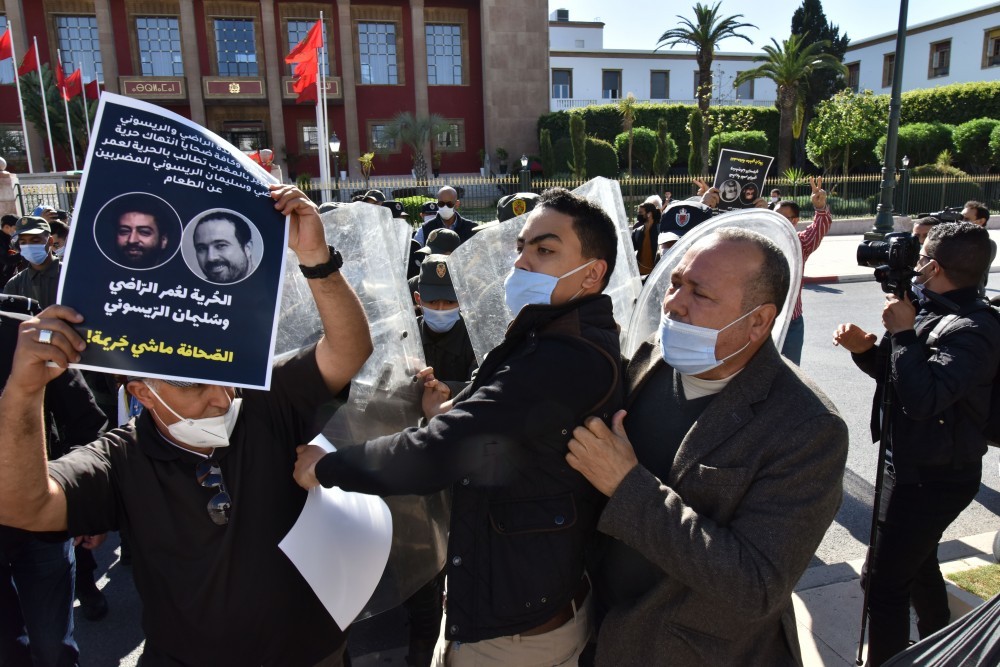The IPI global network is dismayed by the decision of Morocco’s highest court rejecting the appeals of two journalists, Omar Radi and Soulaimane Raissouni, who were convicted on sexual assault charges widely considered to be politically motivated.
The Court of Cassation today upheld a six-year prison term for Radi and a five-year term for Raissouni .The court’s decision was confirmed by the lawyer of the two journalists to Agence France-Presse.
Charges related to sexual assault have become a common tactic of the Moroccan government as a means of tarnishing a journalist’s reputation and limiting support from domestic and international rights groups.
Raissouni, the editor-in-chief of the now-shuttered Akhbar Al Yaoum, was arrested in May 2020 on allegations of sexual assault. He was sentenced to five years in prison in July 2021, and his conviction was upheld on appeal in February 2022.
Radi, an investigative journalist and one of the founders of independent outlet Le Desk, was sentenced to six years in prison in March 2022 on charges of espionage and rape. He had been arrested in July 2020 after publishing articles exposing over 100 people for corrupt land sales. He was also the victim of surveillance through Pegasus spyware. Amnesty International found evidence that his phone was infected from January 2019 until the end of January 2020, leading up to his initial arrest in July 2020.
Imad Stitou, a reporter at Le Desk, was implicated in the same case of rape as Radi, as an accomplice to the crime. He was sentenced to six months in prison, but had already fled Morocco for Tunisia and was tried in absentia.
In addition to Radi and Raissouni, a third journalist, Taoufik Bouachrine, the founder and former editor-in-chief of Akhbar Al Yaoum, has been imprisoned since 2018 on a 15-year sexual assault sentence. He and his wife were also targeted with Pegasus spyware in the two years leading up to his detention.
“IPI is deeply alarmed by Moroccan authorities’ pattern of using politically motivated sex crimes cases to harass and detain critical journalists”, IPI Deputy Director Scott Griffen said. “The context of these cases strongly suggests that Omar Radi and Soulaimane Raissouni were targeted in retaliation for their work covering sensitive issues in Morocco. The weaponization of sexual assault law against the press – which deliberately turns public and international opinion against the defendants – is outrageous. Morocco must release Radi and Raissouni and allow journalists to do their work free from harassment.”
Press freedom is broadly under threat in Morocco. Even after the country passed a press law in 2016 protecting journalists and sources from legal threats, many are still tried under other laws and jailed. Additionally, though an independent National Press Council was created in 2018, since its mandate expired in 2022, the government has been working to pass legislation to exert greater control, establishing “a temporary committee to conduct the affairs of the press and publishing sector and to replace the Press Council for the next two years.”
